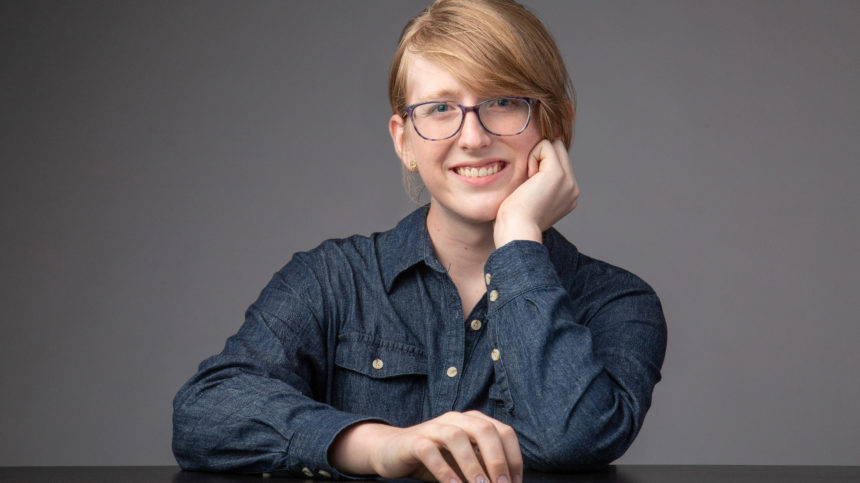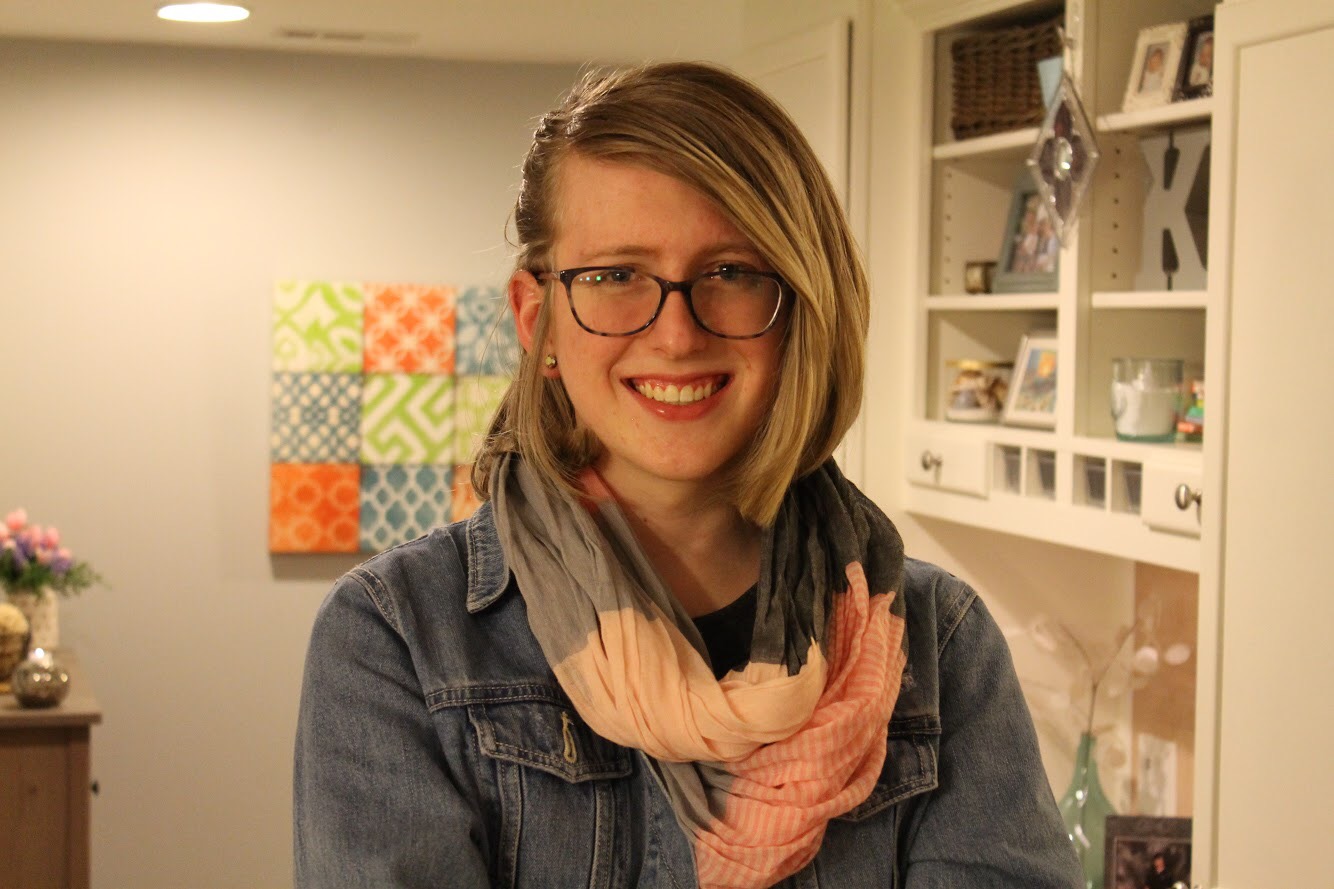
Your seventeenth birthday is important. It’s a precipice between your teenage years and adulthood, the last stop on the road to the rest of your life. Of course, I’m not exactly one to speak on that front. I spent my seventeenth birthday in the emergency room.
I remember how sick it made me feel. The white walls, the uncomfortable stillness, and the absolute silence that felt so much louder than anything I’d ever experienced. I layed in the emergency room bed, stripped down to an uncomfortable gown, thinking about the look the security guard had given me when I told him the metal he’d detected on my back was my bra. Like it was the absolute last thing he was expecting. He didn’t even have to open his mouth. His eyes told me everything that he was thinking.
“Why would a boy wear a bra?”
I had become upsettingly comfortable with the concept of “gallows humor,” that is, the concept of dark and desperate jokes one makes while on their way to a seemingly inevitable and unfavorable conclusion. I remember the sick “comedy” of the whole thing, my parents sat in chairs beside my ER bed as I stared down the scrolling date on my tv screen.
“Huh,” I’d said. “It’s my birthday today, isn’t it?”
“Yup.” My mom had said, uncharacteristically reserved as I could see the gravity of the situation registered clear as day in her mind.
That had been very funny. My seventeenth birthday, and I was in the emergency room for intense suicidal ideation.
My best friend was the one who told my parents how I’d been feeling. Thinking back now, I can’t even imagine the fear she must have felt in that scenario. At the time, I hadn’t even given it a thought. I didn’t see anything worth worrying about in myself. I would look in the mirror and see a boy in girl’s clothing, and the looks I swore I could feel weighing at my shoulders as I walked through the halls seemed to confirm this. The messages I’d get from anonymous classmates about how awful I looked were less of a cherry on top of the issue and more of an entire additional sundae stacked on my already existing problem-sundae. I felt terrible. I was certain I looked terrible. I didn’t care anymore. All I had ever wanted, at the center of my being, was to be an entirely unremarkable high school girl. Anything else came as a secondary goal. I just wanted to be, and comfortable with that…And yet I couldn’t even seem to get that right. So, I had decided, I might as well stop wasting resources.
My parents wanted to get me help as soon as possible, and with how much of my life I’d already spent at Cincinnati Children’s Hospital for both my transition and my kidney disease, it stood out as an obvious choice. Of course, even beyond that, Cincy Children’s has one of the biggest pediatric mental health facilities in the country — still, they were spread utterly thin. They run almost entirely on philanthropy to this day, and the funds just weren’t there to expand. They were full up. There was no opening for me. My options were clear-cut. I could either spend 72 hours on hold in the ER on a medical floor, or I could go home. I didn’t really care. I didn’t really care about anything. At that point, my suicide plan foiled and my problems feeling as present as they’d ever been, I felt so profoundly tired. Emotionally and physically, I was just tired.
So, my parents brought me home, a new safety plan set in their laps. Before I could sleep they had to confiscate anything in my room I could feasibly hurt myself with. Anything that could be used to electrocute, cut, stab, hang, or overdose was taken from my room and bathroom. They even had to fish the Tylenol and melatonin out of the bathroom drawers. And then I slept. And nothing changed.
For eighteen days, my parents could only watch as I crumbled, Cincy Childrens desperately trying to find a place for me. Finally, they were able to get me into their partial hospitalization program with other people my age, and my parents were able to take their first breath of relief in a good long while, knowing at least that for 8 hours a day they could be entirely sure I was safe.
It’s hard to phrase succinctly how much the program helped me, largely because I don’t really think it came in big bursts. It was little things, little sparks that built me back up bit by bit. I was built back up from rock bottom. I got help, both concrete and unexpected. Coping mechanisms and restructured thought processes, solidarity with those who’ve seen similar things and things I had never considered. I emerged scarred, but strangely resilient. Burned, and yet fireproof. Moreover, I left the experience as a whole different person, but, more myself than I had ever been.
It’s hard for me to go back and think about those dark days. I don’t know exactly when I started feeling hopeful again. I just know that what was once a struggle was suddenly something to be enjoyed. I realized that life is a powerful, beautiful thing. The Transgender Clinic and mental health services at Cincinnati Children’s saved me from throwing away everything I’ve come to treasure. And yet, I still lay awake at night worrying about the kids like me who aren’t as lucky. Who don’t have access to adequate mental health care. Who don’t have loving, supportive families. Who cry themselves to sleep like I used to do. It’s because of those kids and the second life I was given that I’ve decided to fight for them when they can’t fight for themselves.
Speaking out and speaking up landed me here…as a national ambassador for Children’s Miracle Network Hospitals. To be fair, I really don’t like the spotlight. Talking to people–whether it’s to hundreds of people on a stage, or a few people in a small room–it terrifies me. Even one-on-one, I get a little shaken up. Still, I keep talking. I’m going to keep talking for as long as people are willing to listen, and probably even after that. I’ll keep fighting as long as I can for the kids who haven’t been given the opportunities I have. For the kids endangered by the anti-trans laws, the kids who can’t find it in them to fight back, and the kids who are having trouble seeing a tomorrow. It’s not easy, and it’s never been easy, but the right things rarely are.




















